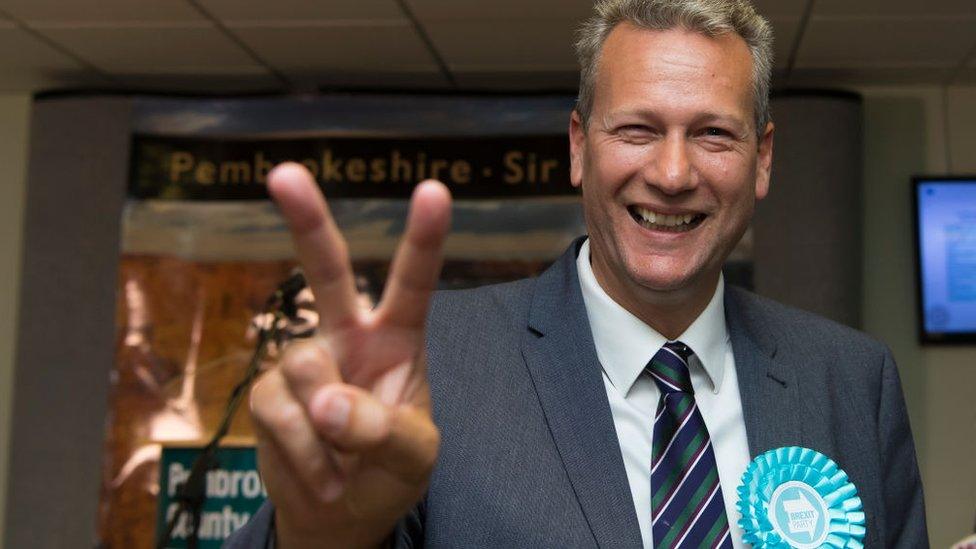Brexit Party MEPs fear MPs will block a no-deal Brexit
- Published
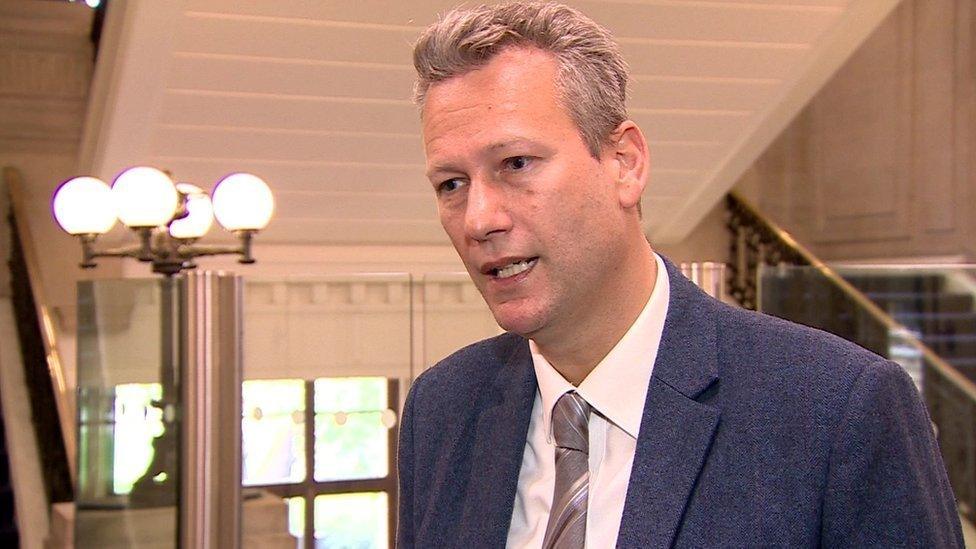
Nathan Gill was elected as an MEP for UKIP in 2014
Wales' Brexit Party MEPs fear there will be another delay to Brexit.
The UK is due to leave the European Union on 31 October but Nathan Gill and James Wells believe MPs will block a no-deal Brexit.
Mr Wells said most Brexit Party members believed there would be a General Election in the autumn.
Wales' two other MEPs, Plaid Cymru's Jill Evans and Labour's Jackie Jones, said they were hopeful the process would be delayed.
The Brexit Party gained two Welsh seats in the European Parliament in May having won 19 of the 22 council areas.
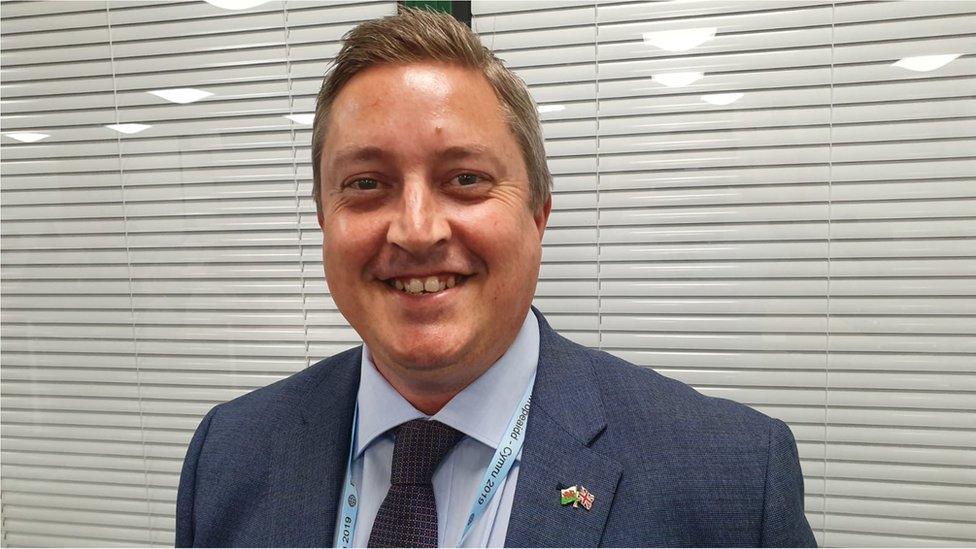
James Wells quit his job at the Office for National Statistics to stand for the Brexit Party
On the first day of the new European Parliament, Brexit Party MEPs turned their backs during the EU's "Ode To Joy" anthem.
"We turned our backs on it because, quite frankly, we don't recognize that the European Union, an institution, should have its own anthem and its own flag," said Mr Gill.
The former UKIP MEP for Wales said he expected to continue in his job beyond the current Brexit deadline "because I just can't see the mechanism by which just changing the leader of the Conservative Party and therefore the prime minister is going to change the numbers in Westminster".
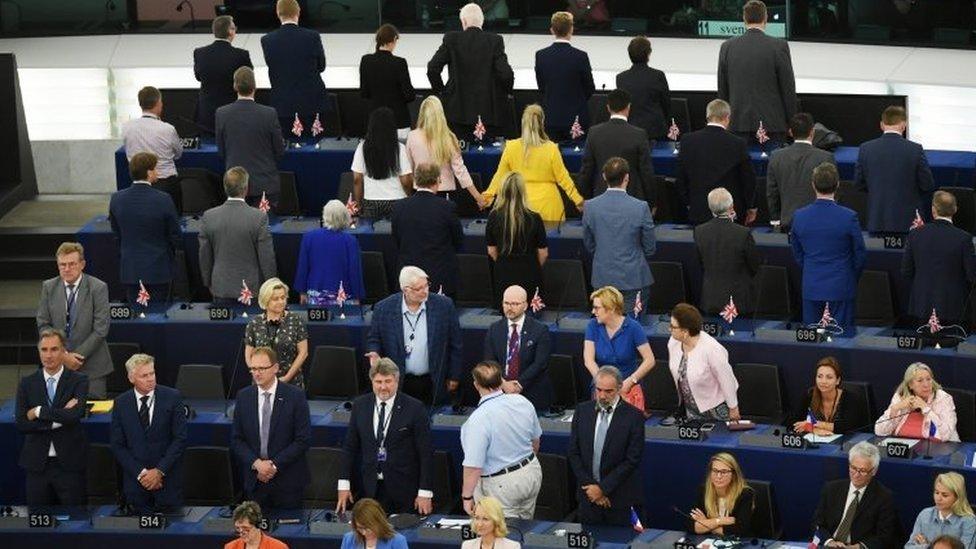
Brexit Party MEPs turned their backs during the EU's anthem as the European Parliament returned
Asked if he was glad to hear the contenders for the Conservative leadership - Boris Johnson and Jeremy Hunt - raising the possibility of the UK leaving the EU without a deal on 31 October, Mr Gill said: "I'm heartened by it but I'm still very sceptical."
Mr Wells, who has been elected to front-line politics for the first time, said: "I genuinely do not want to be here past October but I fear that we probably will be and we'll have a General Election where the Brexit Party will be running a field of MPs to stand in Westminster.
"Most of us in the party expect there to be a General Election in the autumn."
Mr Wells resigned from his job working for the Office for National Statistics (ONS) in order to stand for the Brexit Party.
He said his party's MEPs would not play a "constructive" role in the European Parliament but would represent Brexit supporters back home.
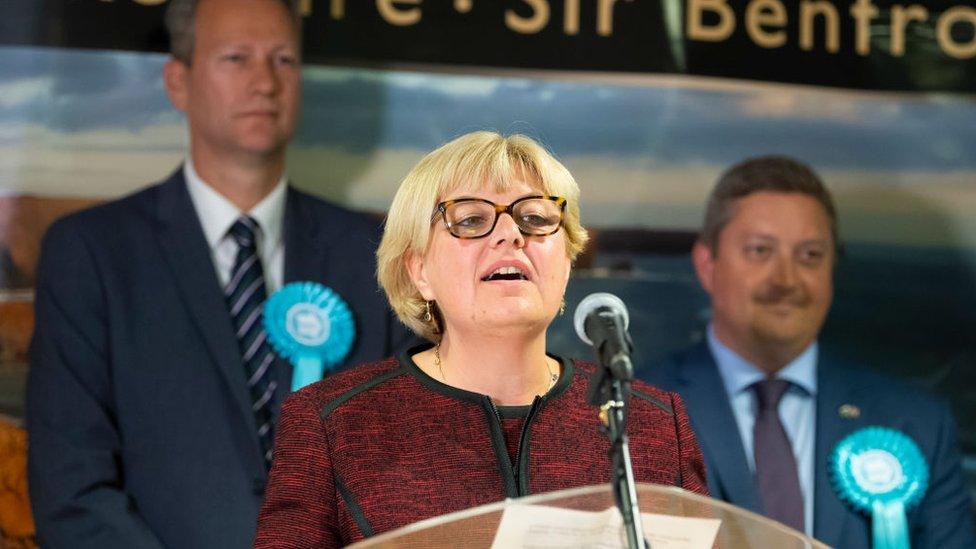
Jackie Jones is a former president of the European Women Lawyers Association
Asked if he was therefore just there to protest and pick up his wage, Mr Wells said: "It is a nice wage packet and it's not just the wages as well, you've got the expenses and your offices, your staff, but that's not why I came in to this and that's certainly not why the other MEPs came into it for."
Labour's MEP in Wales, Jackie Jones, has also been elected to the parliaments in Strasbourg and Brussels for the first time.
"It's been really exciting and also quite onerous because you've got to set up an office, go to Brussels, have to go to group meetings and meet lots of new people," she said.
Her party finished third in May's European elections - behind Plaid Cymru for the first time.
During the campaign, the four Welsh Labour candidates fully backed a second referendum, while the party in Wales and the UK's position was for it to remain an option.
Ms Jones said: "If we'd have had a clearer message… that would have been helpful but I absolutely understand, and we all did, and I still agree that we have leavers and remainers in Wales and all over the UK and it's right that we take their concerns into account."
The former lecturer said she was "really delighted" that Welsh Labour had now changed policy to fully support a second referendum and she was "hopeful" UK Labour would do the same.
Plaid Cymru has been fully behind the idea of another referendum since Adam Price became the party's leader.
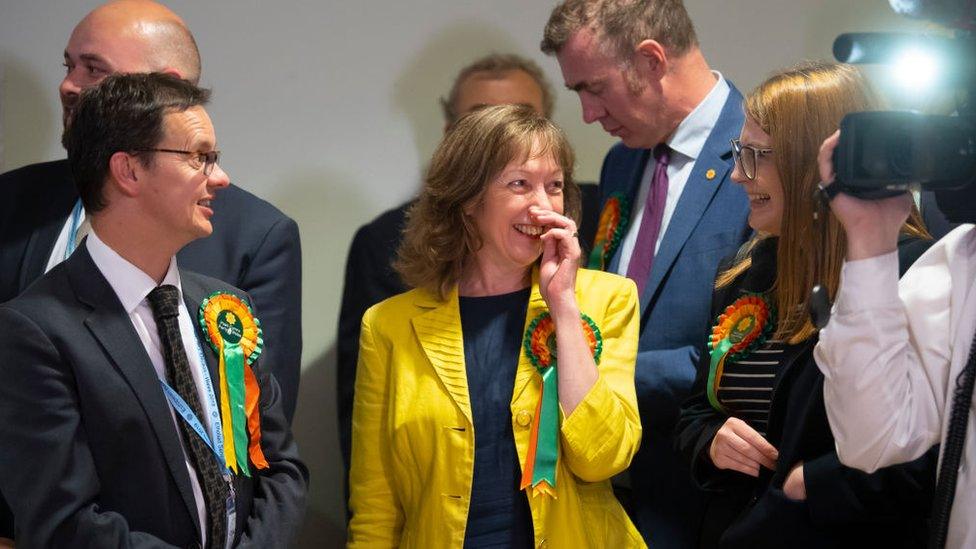
Jill Evans has been an MEP since 1999
Asked if a second poll would deepen the divisions in society, Plaid's MEP Jill Evans said: "There has to be a lot of work done to heal the divides but for such a major decision [no-deal Brexit] to be taken when there is no certainty about people's jobs, about people's futures, we cannot move ahead like that.
"We shouldn't even consider it because it'll be so bad.
"I don't think that we can take such a rash decision that's going to effect Wales for decades to come and I know that people are fed up with the arguments, and I know that people are fed up of talking about Brexit and nothing else... but leaving without a deal means we'll be talking about it for 10, 15, 20 years in the future.
"It won't be the end, it'll just be the beginning of a very difficult phase."
- Published27 May 2019
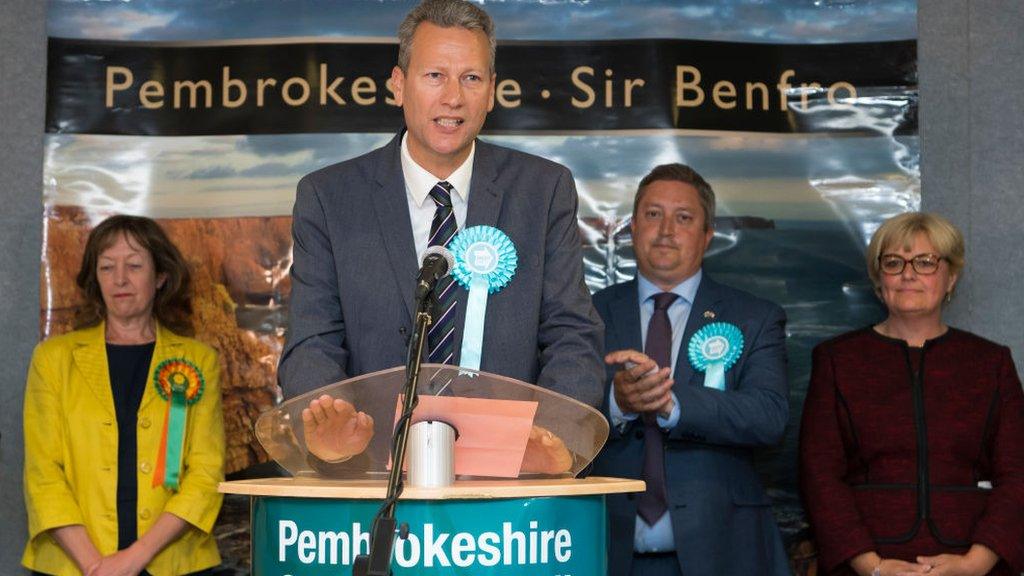
- Published27 May 2019
